QuestionI sought vet care when my cat's abdomen appeared to be expanding sideways, with one side protruding more than the other. He said it may be cancer, but most likely FIP. He administered a shot of antibiotics "just in case" there was anything else infectious going on, so we could rule that factor out. He gave me three weeks worth of daily antibiotic tablets which kitty just completed.
During the visit he noted she was too thin and suggested switching to canned food. Within a couple days of the visit and switching her to canned food she appeared to be feeling better and resumed eating with gusto. She has regained most but not all of her weight. Her abdomen is not shrinking (in fact it looks a little bigger), but she does not appear to be in pain... but I've read you cannot go by "looks" with FIP.
I am taking her back for a follow-up, but am considering trying to locate a more full-service type of animal hospital I can trust and can afford. In researching FIP online I've not found any concrete protocol for caring for them. It seems like even vets have differing opinions about treatments.
Some things I would greatly appreciate your input about follow. Do you think a large facility can actually *do* anything more for her than my "country doctor"/one-man-show style vet? Are there any special foods, drinks, supplements or other things I can give her or do for her to help? I keep reading confounding things like, "FIP is a death sentence" and "but for the rare cats who manage to survive two months out from diagnosis, they can beat it." What is the timeline for how this condition normally progresses? What should I be watching out for? I am interested in any thoughts at all you might have to share about the condition and proper care (maybe there are things that I don't even know I should be asking.)
Thanks for reading and thank you in advance for your reply.
AnswerHi Jane,
I'm so sorry to hear about your kitty. The fact that she's regaining weight sounds encouraging. I would urge you to look more deeply into her diagnosis.
Unfortunatley, for cats with clinical effusive FIP (effusive meaning that fluid is accumulating in the abdomen), I don't believe there is any real chance for a recovery. These are cats who have mounted the poorest immune response against the infection, and usually decline rather rapidly. In extremely rare cases, a fraction of a percentage (I have never seen it occur first-hand or known anyone who has), it may be possible for cats with signs of non-effusive FIP to go into remission. Cats with non-effusive FIP have mounted a partial response to the initial infection and aren't suffering fluid accumulation. They usually have a longer survival time, and rarely, they may be able to work through the inflammatory process that's causing the condition, FIP. It's not believed that these cats are absolutely cured, but that they have been able to suppress the disease and are able to live symptom-free.
You are absolutely correct that the preferred care for FIP patients varies from vet to vet. Basic staples are continued antibiotics and oral corticosteroids. Continued antibiotics are important because FIP patients nearly always have low white blood cell counts, making them prone to infection. Corticosteroids help suppress the inflammatory processes that are ongoing in their bodies, helping them feel better, slowing damage to tissues and improving appetite. Vitamin supplements or immune boosters are also generally a good idea. Some vets advocate the use of Interferon, but others find it controversial. Any country vet can certainly provide antibiotics, prednisone (the steroid) and a multivitamin for you. The Interferon and some more experimental drugs may require a trip to a more advanced animal hospital.
I think the first step is certainly to get a better handle on the diagnosis. Since your kitty's belly is full of fluid, an abdominal tap should be easy to perform. It is minimally uncomfortable and can be done right in the office in just a few seconds. The fluid obtained from the tap can be analyzed for a near-certain diagnosis. There are numerous conditions that can cause fluid in the belly, but FIP causes a very distinct syrupy, straw-colored fluid. Most likely, the vet performing the tap will be able to tell you if the fluid is characteristic of FIP just by looking at it and touching it, but it can be sent out to a lab and analyzed for antibodies to be sure. If it does not indicate FIP, you know you're dealing with some other condition causing fluid accumulation. This can include cancer, as mentioned, liver or kidney disease, a persistent infection and some less common causes.
In order to access the necessary diagnostics, you may want to head to a different vet. I'm not sure just how "country" your vet is, but I know my country vet didn't work with a laboratory at all! And I think it would be best to have your kitty's condition confirmed or ruled out by a lab. Although FIP is hard to confirm 100% on a live cat, those who have effusive FIP are unique in that they provide us the abdominal fluid as a sort of biopsy sample. It's safe to assume the results of this test are quite accurate.
If FIP is confirmed, most effusive FIP cases progress quickly. Sadly, the fluid in their abdomen makes breathing difficult. It begins to place pressure on the lungs and eventually the heart. Most patients do not survive longer than 1-2 months from diagnosis. In some patients, regular abdominal taps can help relieve pressure from the lungs. It's important to watch for changes in her posture or the way she sits or lays that indicate she's having difficulty breathing. Open mouth breathing means she's critical. Also, loss of appetite and vomiting mean her stomach may be being squeezed by surrounding fluid. These are indications that it's time to make a final decision for her.
I'm sorry you're going through such a hard time. FIP is uncommon, and probably over-diagnosed, so I hope you find a different cause for your kitty's symptoms.
Best wishes,
Jessica

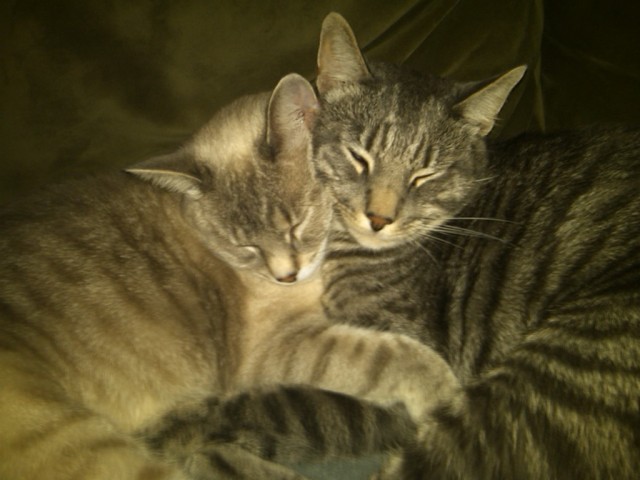 What breed/mix is my cat?
QuestionSugar and Oliver
QUESTION: Hi,
Im wond
What breed/mix is my cat?
QuestionSugar and Oliver
QUESTION: Hi,
Im wond
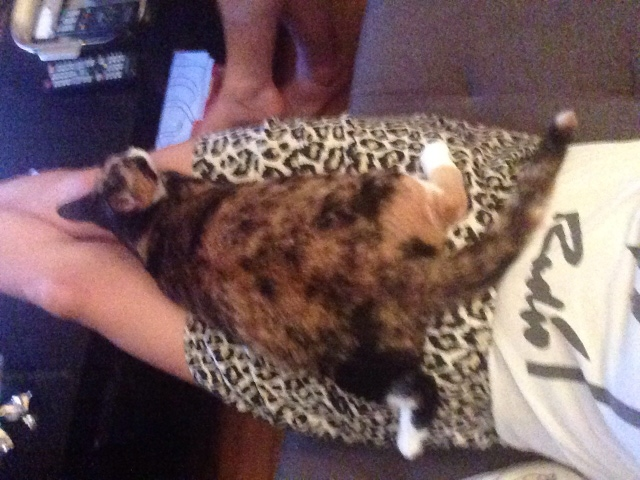 Cat eating too much?
Question
Chickpea
Hello,
Ive attached a photo of
Cat eating too much?
Question
Chickpea
Hello,
Ive attached a photo of
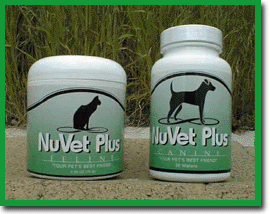 cat vitamins; valerian feline;; NuVet health pets; wholistic Feline;
QuestionHi, I have a mostly indoor cat - sh
cat vitamins; valerian feline;; NuVet health pets; wholistic Feline;
QuestionHi, I have a mostly indoor cat - sh
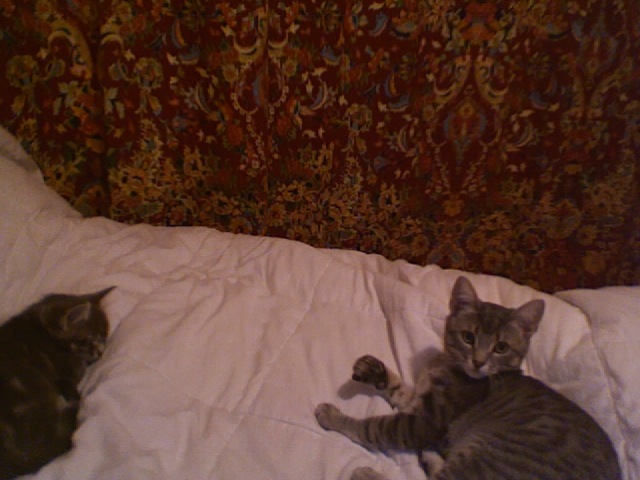 Kitten introduction
Question
the brothers
I recently (yesterday) int
Kitten introduction
Question
the brothers
I recently (yesterday) int
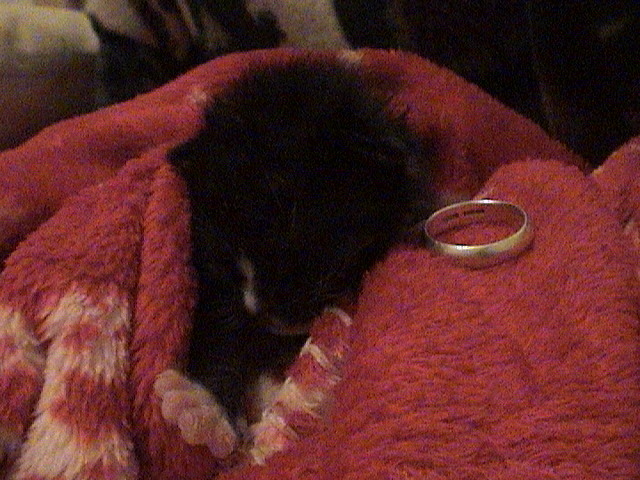 Orphaned Kitten
QuestionQUESTION: My partner and l are very much animal
Orphaned Kitten
QuestionQUESTION: My partner and l are very much animal